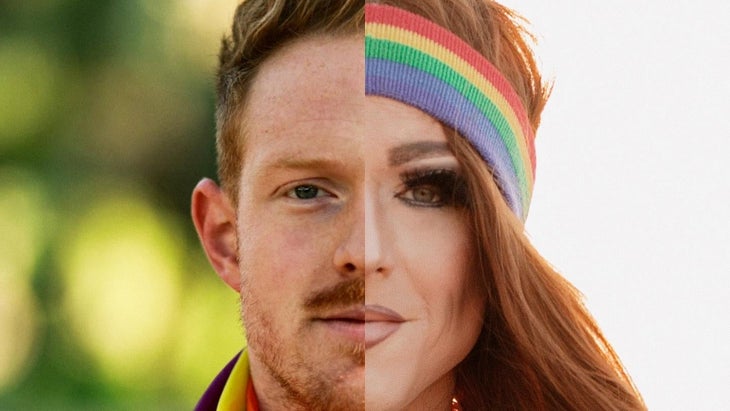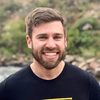Backcountry has launched an innovative new advocate sponsorship program, Breaking Trail, aimed at supporting and welcoming underrepresented communities. The Breaking Trail program is similar in structure to a traditional athlete sponsorship team, with one key exception: It focuses on outdoor leaders who shine not only in their individual sports, but also as advocates driving meaningful conversations and change in the diversity of the outdoor community.
Inspired by Pattie Gonia, the drag persona of outdoor photographer Wyn Wiley, Backcountry’s Breaking Trail program will offer long-term, sustainable support to these outdoor leaders working to make the outdoors more inclusive.

“I’m proud of Backcountry for not just talking the talk but also walking the walk, saying they believe diversity in the outdoors matters and following through with action, allyship, and direct financial support for the advocates as they create community for diverse outdoorists,” said Wiley, who will support Backcountry’s Breaking Trail program both as a photographer and an advisor.
The program, which launches this month, includes not only sponsorship dollars but monthly features that amplify the advocates and their organizations. Advocates will also lead trainings at Backcountry internally, and at the end of the year, Backcountry plans to fly them all to Park City for a community engagement summit and storytelling event.
The program’s class of sponsored athletes will include seven outdoor trailblazers: José Gonzaléz, diversity educator, athlete, and founder of Latino Outdoor; Ron Griswell, advocate, educator, and founder of HBCUs ���ϳԹ���; Juju Milay, athlete and founder of Colour the Trails; Eliot Jackson MTB athlete, presenter, and co-founder of Grow Cycling Foundation; Jaylyn Gough, photographer and founder of Native Women’s Wilderness; Cali Wolf, ER nurse and coordinating director of Native Women’s Wilderness; and Kareemah Batts, diversity advocate, cancer survivor, and founder of Adaptive Climb Group.
“This program should serve as a blueprint for companies who wish to approach marginalized communities that they don’t directly belong to,” said Batts. “They let us lead the campaign every step of the way. I had never experienced anything like that before. I have good expectations about this partnership—this is just the beginning.”
How Backcountry Chose Its Athlete Ambassadors
Colleen O’Neill, senior marketing manager at Backcountry, told OBJ this week that the inaugural class of athlete-ambassadors is the first of many to come.
“This is a long-term commitment that we will be developing for years,” she said. “Our initial thought was to include 12 advocates, but we realized we wouldn’t be able to tell everyone’s story in a meaningful way, so we’re starting with seven.”
Backcountry selected the athletes based on several criteria, but two of the most important, O’Neill says, were existing relationships and nonprofit involvement. The company wanted to kick the program off by working with advocates it had supported in the past; it also made sure that each of those advocates was involved with some kind of nonprofit organization, so that Backcountry could support those organizations with the ambassadors’ help.
As for coming classes, O’Neill says the company welcomes input from anyone in the outdoor community as to who should be involved.
“This is a two-way street,” she said. “We’re open to any and all advice for our next advocates. This is a community effort and we’re open to any guidance our community can give us.”
For the makeup of future classes, O’Neill says that including members of the AAPI (Asian American and Pacific Islander) community is “100 percent on Backcountry’s radar.”
“We know that we need to be more inclusive that space,” O’Neill said, “and we’re excited to expand in that direction.”
Sunn Kim, a digital content producer for Backcountry who worked with Wiley to photograph the inaugural class of athlete-ambassadors, says he felt a sense of deep purpose assisting in the effort to amplify these seven voices.
“When I was growing up, I struggled with my identity in the outdoors as second-generation Korean American,” Kim said. “This [photoshoot] was the first time I was surrounded by people who felt the same kind of restrains I’ve always felt in the outdoors. As a creative, I feels it’s my responsibility to give these people a voice.”
Paul Tew, senior creative director at Backcountry, added that this project is meant to be a conversation, not a marketing campaign.
“This is more than just imagery—this is a storytelling effort,” Tew said. “We’re going to be doing interviews with every ambassador because we feel it’s just as important to hear peoples’ voices as it is to see their images. Those interviews will be included in the monthly spotlights for each advocate.”
Backcountry’s Larger Commitment to Diversity
This new initiative is not the first effort Backcountry has made to improve diversity in outdoor recreation. The company is also one of 175 organizations that have signed the Outdoor CEO Diversity Pledge, founded by Teresa Baker and Chris Perkins in 2019. The Pledge is a commitment to action that moves the outdoor industry toward authentic inclusion.
The spectrum of how companies have interpreted that pledge—and how much success they’ve seen in making progress toward their goals—varies widely. Nonetheless, Baker sees tangible progress in the making.
“I think brands are finally coming around to the understanding that equitable representation in marketing matters,” she said. “What I really like about the campaign is that everyone is wearing their own style. Backcountry didn’t make it a necessity to have everyone styled in their line of clothing.”
Through the Breaking Trail program, Backcountry hopes to become a more inclusive organization while at the same time amplifying the message of its new leaders—spreading the message of inclusivity as widely as possible throughout the industry.



